How are you doing today? I have a little spring in my step since I can cross “cleaning the dishwasher” off my to-do list. How about you; did you take on the gritty challenge and clean the gunky filter? Today we are discussing tips from the experts on how to load our favorite kitchen appliance. I know everyone has their own ideas on this topic, but I’d like to pass on what I’ve learned about this to you, dear reader.

Top Rack
The top rack and the heating element at the floor of the machine have a decent amount of space gap, so as not to damage china or glasses. Just a note that if you are loading plastic containers, make sure they are labeled as dishwasher safe. My Pyrex lids are cracking, and I did do a melting number on a compostable, disposable plastic cup.
What to put in the top rack: Glasses, large utensils, soup and cereal bowls, plastic containers and lids.
Do:
· Put glasses on the sides between the tines.
· Place bowls in the middle in between the tines with space between them. In the picture above they are two row of tines between bowls.
· Orient your mug so the handles are turned at 45-degree radius to prevent puddles forming on their bottoms.
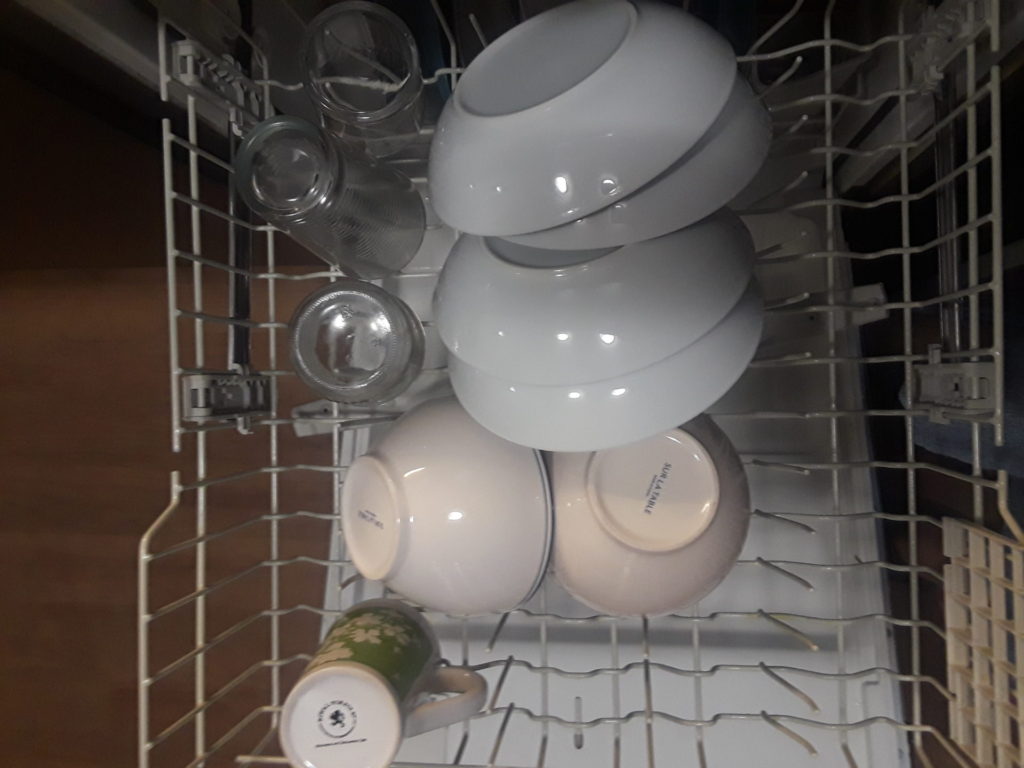
Don’t:
· Put glasses on the tines, they will jostle in the wash cycle and could break and that would defeat Ms. Josephine Cochran’s intention of inventing the machine in the first place. Also, the tines could leave marks on your glasses over time.
· Overlap bowls, so the water can get to the whole bowl.
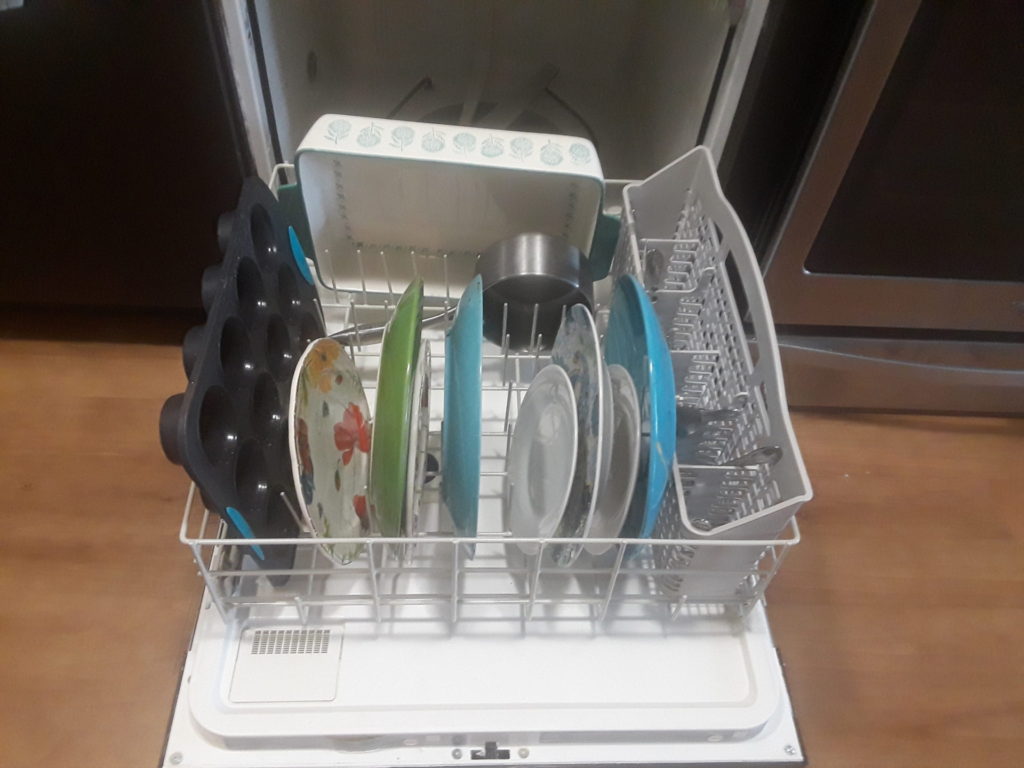
Bottom Race
What to put in the bottom rack: baking sheets, pots, pans, casserole dishes, plates, and mixing bowls.
Do:
· It is a good idea to mix sizes of plates on a rack; Interchanging a salad plate and a dinner plate. Make sure they are facing the middle.
· Place large casserole dishes or pots and pans in the back of the rack or on the sides.
· Place large pots on their sides.
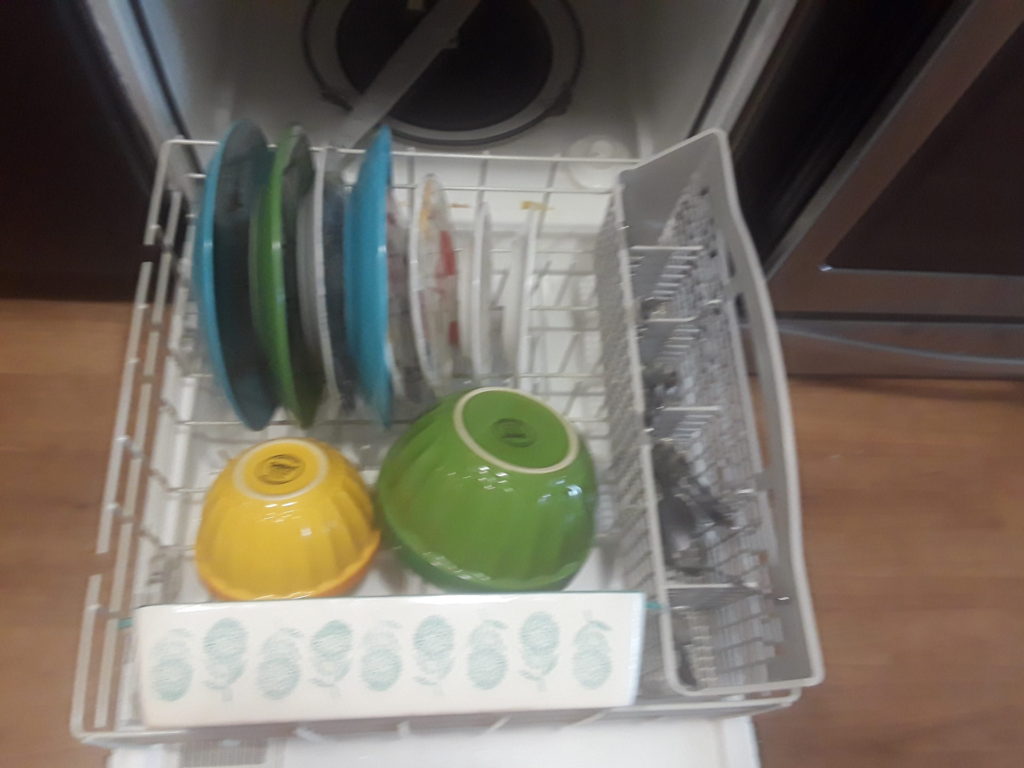
Don’t:
· Put large pots and pans or casserole dishes face down, that will impede the water’s path to the other dishes.
· Put large pots in the front of the rack, that will block the soap dispenser on the door and impede the flow of the soap throughout the machine or just become a blob stuck on that pot.
· Place plates all in one direction, it impedes the flow of water and soap.
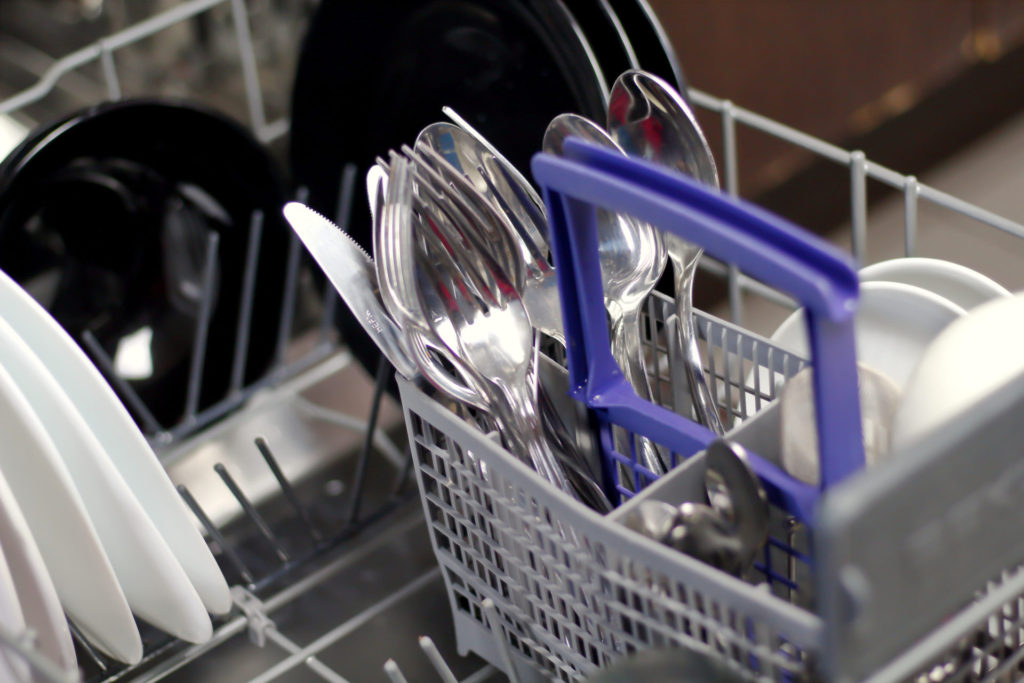
Silverware
For easy unloading of eating utensils put same in one basket. When putting them in the basket put the forks going up and down so they will not get spooned together during the wash cycle and probably come out still dirty.
What not to put in DW:
Knives other than butter: they could harm other items in the dishwasher and the heat can harm the handle and dull the blade over time.
Wood I.e. wooden spoons, bowls, cutting boards- I have done this and now have cracked wooden spoons and a warped cutting board.
Cast Iron Pans-Can cause it to rust and lose its seasoned coating.
Fine china
Crystal-too delicate for the forceful pressure of the water coming from the spray arms
Hand painted dishes
Pewter, Bronze, Copper-Their finish would be oxidized.
Candle Holders- the wax can wreak havoc on the dishwasher
Car Parts-Dishwashers cannot handle car grease. It can clog the filter and ruin lt.
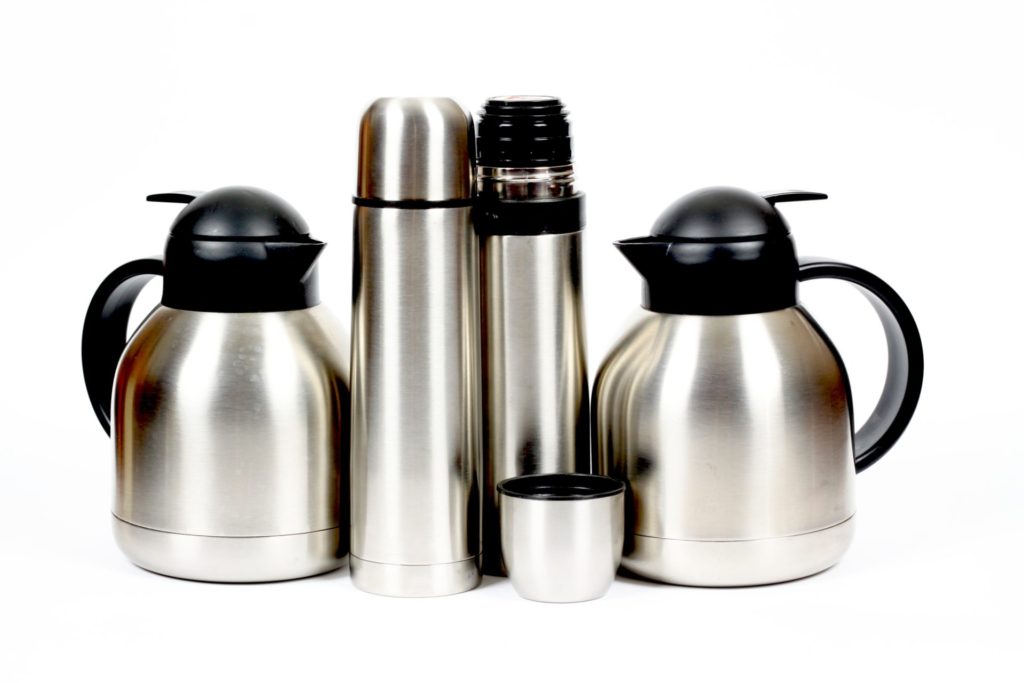
Insulated Cups and Thermoses-The heat of the dishwasher can damage the isulated wall on these products.
Non-Stick Pots and Pans- The combination of hot water and detergent can wreak havoc on the non-stick coating.
Must-See Videos
How to Load Your Dishwasher and What Never to Put in the Dishwasher This is a brilliant video from Sear’s with tips that I have not encountered in my research. You need to watch it, just to see his way of placing plastic lids. Magical!
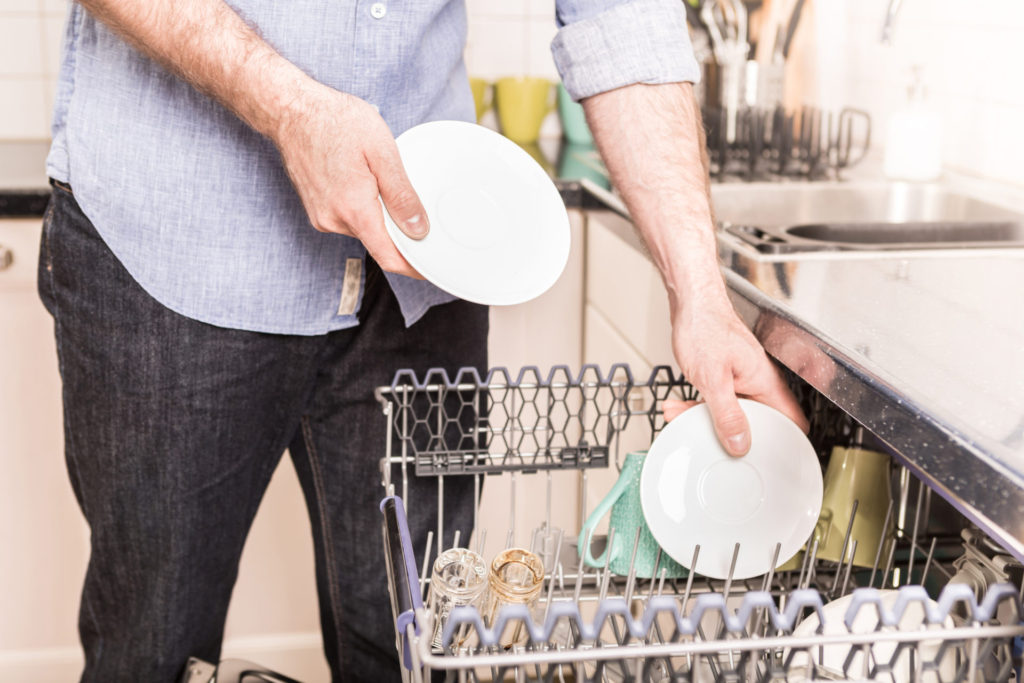
How to Load A Dishwasher-Bosch Dishwasher Tip #1
Besides great basic rules to load a dishwasher, it is awesome to see a dishwasher that has some innovations that I spoke and didn’t speak about in the first post in the series.
How to Load a Dishwasher Properly
So much information packed in a no-nonsense fashion in 5:55 mins.
Loading the Dishwasher: You’re Doing It Wrong
This is a video of an interview berween two Wall Street Journal reporters discussing the household dynamic of loading the dishwasher. They talk about how there are 3 types of DW loaders; the curator, the protectors, and the organizers. Take a listen to learn which type you are.
In Conclusion.
Now, knowing how the dishwasher operates, it makes loading it properly easier and sensible. Do you feel more comfortable and confident loading your favorite machine? The recommended videos could be required viewing for those that share the same kitchen as you.
Til Tomorrow when we will talk of odd uses for DW. Love to hear how this information is changing your world, down below in the comment section.
Aimee.